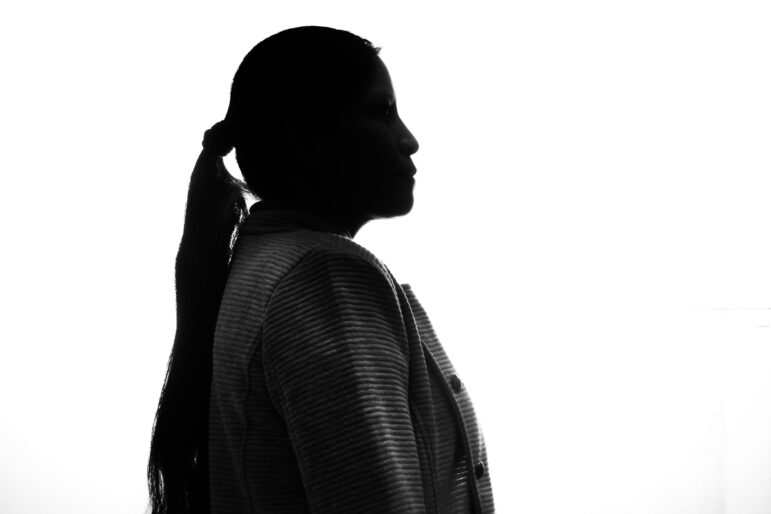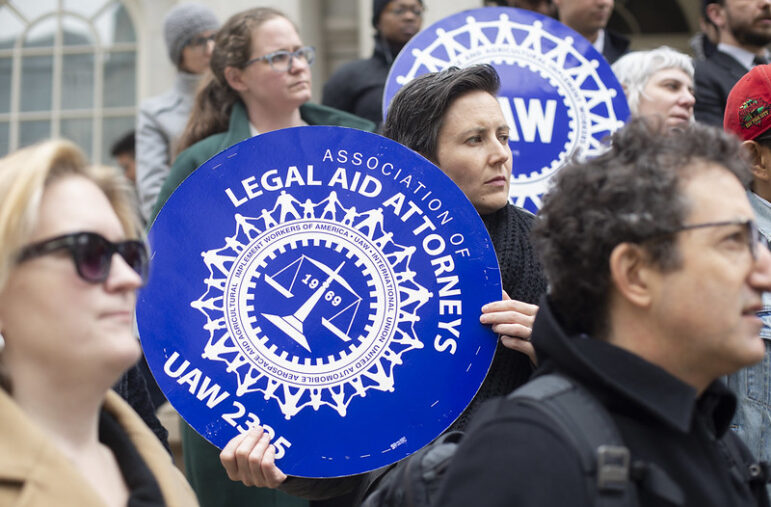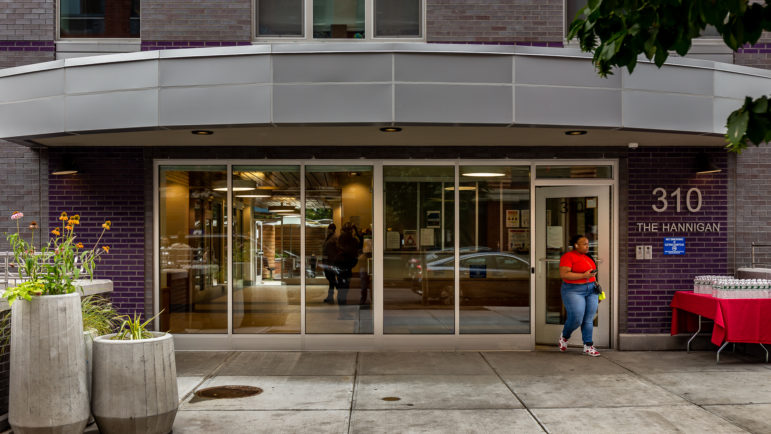More than three years after 15 laundry workers first lodged their complaint with New York Attorney General Letitia James, the employees—all Latina immigrant women—finally received the first checks for their owed salaries. The case is emblematic of what can be a long road to justice for victims of wage theft, which lawmakers estimate impacts some 2.1 million New Yorkers each year.

Adi Talwar
“It wasn’t a lot of money, but it’s something,” said Micaela, one of 15 workers at a Queens laundry company who recently received owed funds as part of a $90,000 settlement from their former employer with the Attorney General’s office.Lea la versión en español aquí
They quickly learned the laundry cycle: receiving, washing, drying, ironing, folding, and packing up clothes in bags, then readying them for distribution by delivery vans. They clocked out when all the clothes were ready to be dispatched, a process that took longer than the regular 8-hour work day, but they were not paid overtime or sick leave. They believed they were not entitled to overtime pay because they were migrants—and they were wrong.
The workers were employees of Enterprise Cleaner, also known as JM Pro or KTN Cleaner, commercial dry cleaners in Astoria, Queens, where the owners failed to pay proper minimum wage, overtime and sick pay, according to an investigation by the New York Attorney General’s office that began in 2020. The company’s owners reached a settlement with the AG’s office in October, agreeing to pay back $90,000 in owed wages.
Earlier this month, more than three years after the laundry workers first lodged their complaint with New York Attorney General Letitia James, 15 of them, all Latina immigrant women, finally received the first checks for their owed salaries. The case is emblematic of what can be a long road to justice for victims of wage theft, even when workers have elected officials and advocates on their side. Lawmakers estimate some 2.1 million New Yorkers are impacted each year, many of them immigrants who mistakenly believe labor laws do not cover them.
“[We] didn’t expect that we were going to win, because it had been a long time and we didn’t know anything,” said Delia, 34, one of the workers included in the settlement who preferred not to reveal her last name for fear of reprisals.
A law firm representing Enterprise Cleaners, the business accused in the case, declined to comment on the settlement.
The workers’ decision to take the case to the Attorney General’s office was to set a precedent, said Rosanna Rodríguez, co-executive director at the Laundry Workers Center, which worked with the Queens workers on their case.
“We wanted other employers and workers to see the consequences,” Rodríguez said. “To create impact, like a ripple effect, so that employers in the industry realize that there are government agencies watching them.”
But the money recollected from wage theft cases pales in comparison to the number of people affected. A study by Cornell University’s Worker Institute—published more than a decade ago but still used as a benchmark by policymakers—estimated that wage theft in New York accounted for almost $1 billion in lost wages annually.
In July 2022, Gov. Kathy Hochul announced a state “crackdown” on wage theft, launching a “multi-pronged effort” that included the creation of a hotline and online system for workers to report violations. The state had recovered about $3 million in owed wages from offending employers since the start of the COVID-19 pandemic, the governor’s office said at the time of the announcement. The Labor Department did not immediately respond to City Limits requests for updated numbers, or how many complaints the new hotline has received since it opened this summer.
The AG’s office, one of the most aggressive government entities pursuing these crimes, has recovered over $23 million in the last three years in cases related to wage theft as well cases in which wage plays a role: $6.35 million from 11 cases in 2022; $15.38M from five cases in 2021; and $1.99M from three cases in 2020.
District attorneys also pursue wage theft cases. Queens DA Melinda Katz launched the Office of Housing and Worker Protection in 2020, which has opened eight investigations involving dozens of workers, according to a spokesperson. The initiative has returned more than $1.4 million to victims of wage theft since it started.
For years, lawmakers and advocates have been pushing two bills that would facilitate the recovery and investigation of wage theft cases in the state. The Securing Wages Earned Against Theft (SWEAT) bill in Albany would grant victims the ability to place a lien on their employer’s assets if the company goes out of business or files for bankruptcy—a tactic some use to avoid paying up, advocates say.
The other bill, introduced by Assemblymember Catalina Cruz and State Senator Neil Breslin, would amend New York’s Grand Larceny statutes to include wage theft, and include wages in the definition of “property” to enable prosecutors to charge employers with more serious felonies than what’s currently on the books.
“Currently, New York State law does not consider wage theft to be property theft, meaning prosecutors cannot charge larceny for stolen wages,” Manhattan District Attorney Alvin L. Bragg, Jr. said in a statement last week announcing the creation of a unit to investigate and prosecute wage theft and other forms of worker exploitation and harassment. “Accordingly, individuals and companies that steal workers’ wages typically face charges of Scheme to Defraud, which is the lowest level felony under New York State law,” he added.
That new unit will include a $100,o00 fund to compensate workers who would otherwise be shut out from restitution pay, the Manhattan DA’s office said as part of the announcement, noting that “victims of wage theft are not always made whole through criminal prosecutions.”
Both advocates and private attorneys acknowledge that government agencies charged with investigating wage crimes generally are understaffed, and their cases can take a long time.
The investigation into the Queens dry cleaners took more than three years from when the AG’s office first launched its investigation in January 2020 to Feb. 8, when the 15 victims received their first compensation checks.
As part of the resolution, the AG’s office will identify eligible restitution workers, determine the amount of the restitution, and schedule future payments.
The money recovered by the workers City Limits spoke to so far amounted to a couple thousand dollars each. “It wasn’t a lot of money, but it’s something,” one of the employees named Micaela, 41, said in Spanish. “We have succeeded in stopping them from continuing to abuse workers.”









One thought on “The Long Road to Justice for NYC Wage Theft Victims”
Do the writers at City Limits need assistance identifying sources in organized labor for stories about wage theft? I have a knowledgeable contact in the construction trades who can share decades of experience fighting wage theft nationwide.